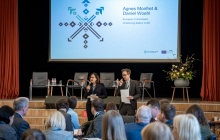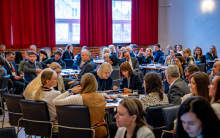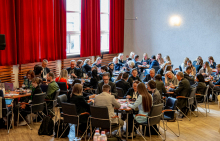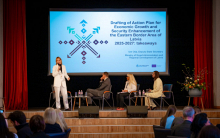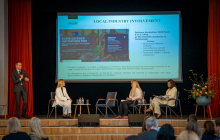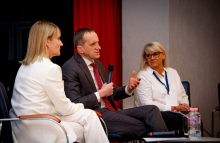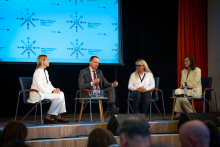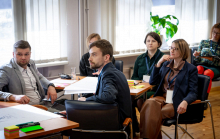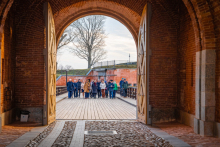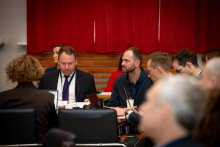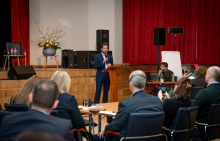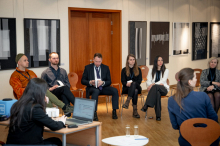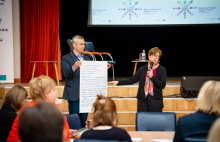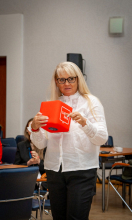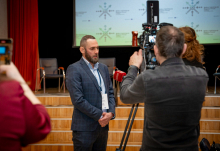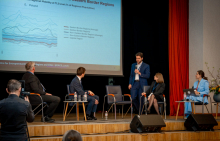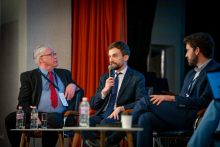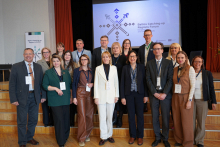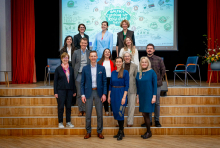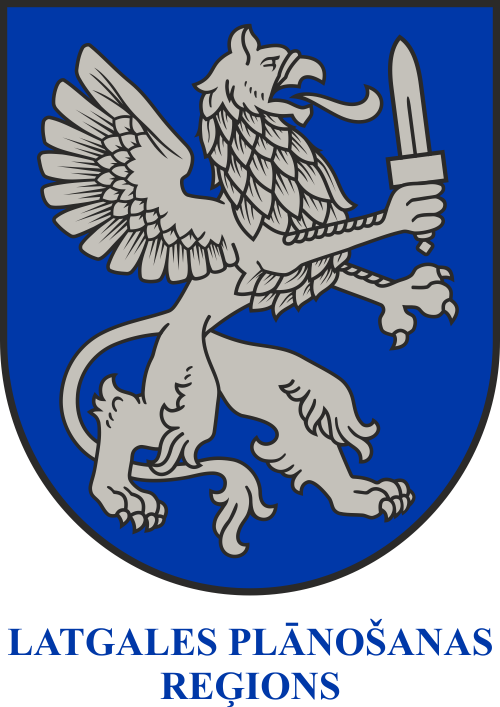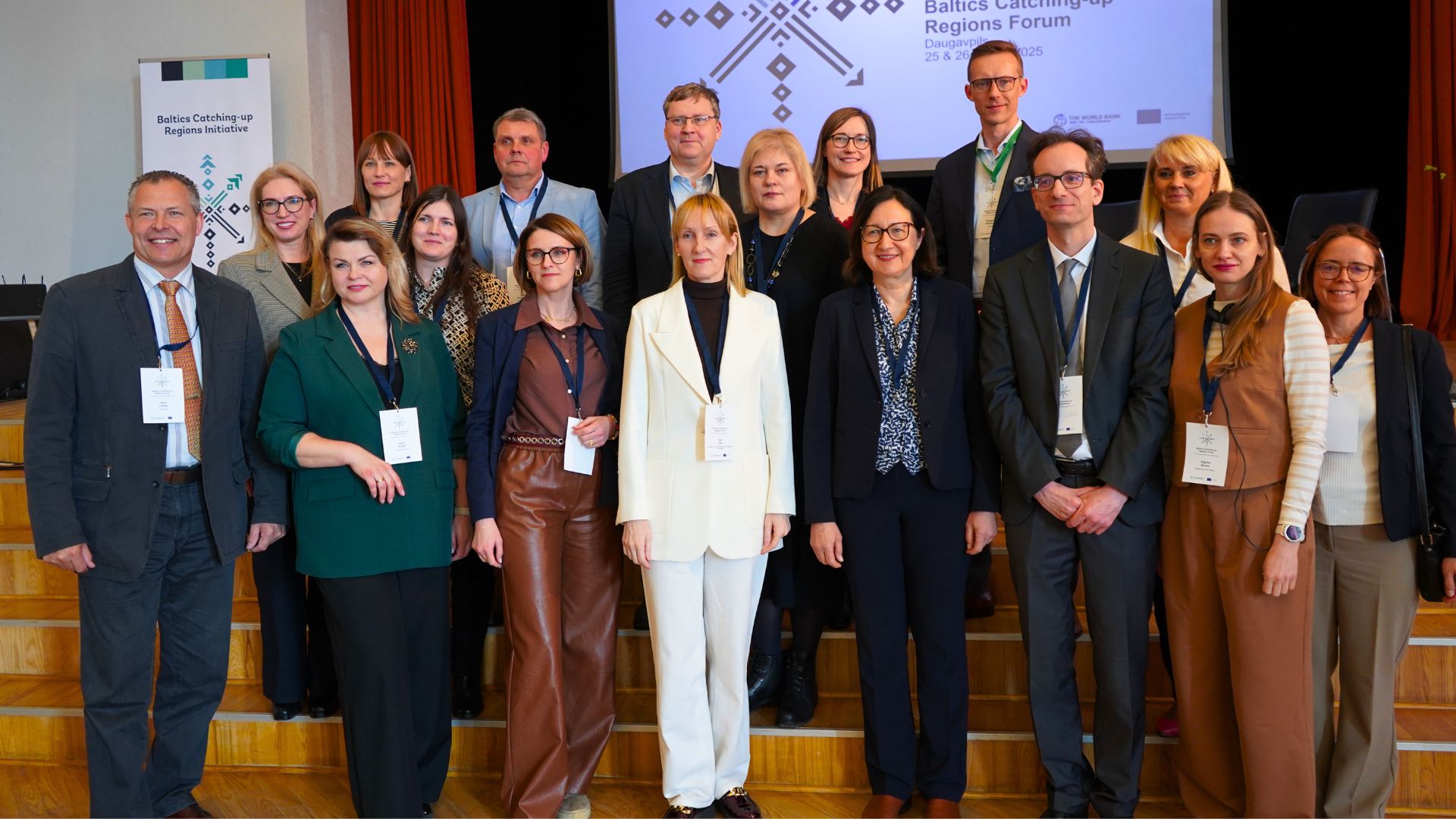
Over the course of two days, experts, policymakers, and stakeholders gathered in Daugavpils to explore strategic development opportunities and address persistent challenges faced by Europe’s border regions, with a particular focus on Latgale. The Forum centred on enhancing cross-border cooperation, identifying growth drivers, and leveraging the region’s unique assets.
The first day of discussions focused on integrated regional planning, examining both horizontal and vertical governance frameworks. Participants analysed the role of functional zones as catalysts for regional growth and discussed service provision across administrative boundaries. Best practices and practical case studies from Latvia, Lithuania, and Estonia were shared, complemented by a collaborative workshop aimed at generating actionable ideas and strategies.
Day two shifted the focus toward economic resilience and local empowerment. Key themes included support for entrepreneurship, the role of creative industries in community development, and advancing education and skills in border areas. Representatives from the OECD, Interreg, and ESPON provided insights into EU-level support mechanisms tailored to border region development.
A thorough analysis of Latgale’s socio-economic landscape was also presented. Experts underscored the need to upgrade regional infrastructure, enhance educational opportunities, and expand employment prospects. The Forum’s overarching goal was to foster innovative, inclusive solutions that stimulate investment, drive sustainable growth, and strengthen social cohesion across Europe’s border regions.
“It is so fantastic to be here in Latgale and to see the excellent work and really engaged people thinking about how Latgale can take action to improve the lives of people living here by bringing people and businesses together,” said Ellen Hamilton, World Bank Lead City Specialist.
European Commission Highlights Strategic Importance of Border Region Development at Daugavpils Forum
The Forum brought together key stakeholders, including representatives from the European Commission, the World Bank, and the Baltic border regions, underlining the event’s significance for regional development.
Linda Sproģe, representative of the European Commission’s Directorate-General for Regional and Urban Policy (DG REGIO), emphasized the value of collaborative efforts:
"It is a pleasure to be back in Latgale, in Daugavpils, where this forum has united representatives from the European Commission, the World Bank, and the Baltic border regions. This marks the first major event dedicated specifically to the development of these regions—a crucial step toward jointly addressing challenges and identifying solutions to improve quality of life and promote local economic growth."
As part of the initiative, the World Bank has been tasked with evaluating the business environment in Latgale and developing targeted recommendations to support local entrepreneurship, job creation, and regional economic resilience.
With over 120 participants in attendance—including representatives from national ministries—the high level of engagement reflects both the region’s pressing challenges and its untapped potential.
"Latgale is not only facing challenges; it also presents numerous opportunities. Through joint efforts, we can drive sustainable and inclusive development across the region," Sproģe concluded.
Forum participants emphasized that effective regional development is not only essential for improving the quality of life for local communities, but also plays a critical role in ensuring the broader security and stability of the Baltic Sea region.
Ilze Oša, Deputy State Secretary for Regional Development at the Ministry of Environmental Protection and Regional Development, highlighted the importance of strategic planning:
"Today, we are reflecting on the progress made under the Eastern Border Plan and discussing the way forward. It is essential to integrate a territorial approach into planning documents, as this enhances regional development outcomes and strengthens the region’s ability to attract investment."
Discussions reinforced the need for a coordinated, long-term vision that addresses structural challenges while building on regional strengths. The integration of such strategies into national and cross-border frameworks is seen as a cornerstone for sustainable and inclusive growth across Europe’s border areas.
Opportunities to develop special economic zones, promote high-tech industries and exploit the region's natural and cultural capital for economic development were discussed. "Latgale has many opportunities - natural resources, cultural capital, special economic zones. However, it is important to work together to address connectivity and security issues," added OECD expert Michael Flood.
Latgale SEZ Showcased as a Catalyst for Regional Growth and Investment
Iveta Maļina-Tabūne, Head of the Latgale Planning Region Administration and Manager of the Latgale Special Economic Zone (Latgale SEZ), provided an in-depth presentation on the strategic advantages offered by the SEZ. She emphasized its critical role in fostering business development, attracting investment, and accelerating the region’s economic growth.
Maļina-Tabūne outlined key benefits available to investors, including competitive tax incentives, infrastructure development opportunities, and the growing importance of international cooperation. These factors collectively position Latgale as an increasingly attractive destination for both domestic and foreign enterprises.
The Forum itself is a European Commission initiative aimed at supporting the development of the three Baltic border regions, with a particular focus on the unique challenges faced by Europe’s outermost territories. The central goal is to identify the most effective ways to leverage existing financial and human resources to drive regional growth, unlock new opportunities, and establish sustainable development initiatives. These efforts are also aimed at improving regional retention and attractiveness for both residents and newcomers.
"We are grateful to the European Commission, the World Bank, the OECD, Interreg, ESPON, the Ministry of Environmental Protection and Regional Development, the Ministry of Defence, and all our partners for their support, expertise, and meaningful contribution to Latgale's ongoing development," Maļina-Tabūne remarked.
Local Business Voices Highlight Support Needs at Forum
The Latgale Special Economic Zone (SEZ) business community was represented at the Forum by SIA “Kuprava Industry”, a company based in the Balvi district. The company participated in the working group “What Do Local Businesses Need to Grow?”, offering practical insights from the perspective of small and medium-sized enterprises (SMEs) operating in the region.
Gints Dzērve, Member of the Board of Kuprava Industry, emphasized the importance of a well-structured and targeted support package for local businesses.
"Small enterprises require more than just financial investment in business development. Equally critical is the improvement of essential infrastructure, such as road networks, which directly affects operational efficiency and business growth," he noted.
The discussion underscored the need for comprehensive, multi-level support that not only fosters business expansion but also strengthens the overall economic environment in Latvia’s border regions.
Forum Marks a Key Milestone in Regional Development Planning
In conclusion, participants agreed that international cooperation and the exchange of best practices are essential for effectively addressing the development challenges faced by the Baltic Sea border regions.
"This Forum has provided us with valuable insights and actionable conclusions that will significantly inform future regional development strategies," said Edmunds Teirumnieks, Member of the 14th Saeima and Chair of the Latgale Sub-Committee.
"Latgale has the potential to become a model for successful regional development, driven by collaboration with international partners and the adoption of innovative approaches."
The Forum highlighted the importance of integrated planning, cross-border cooperation, and strategic investment in strengthening the resilience and competitiveness of Europe’s outermost regions.
